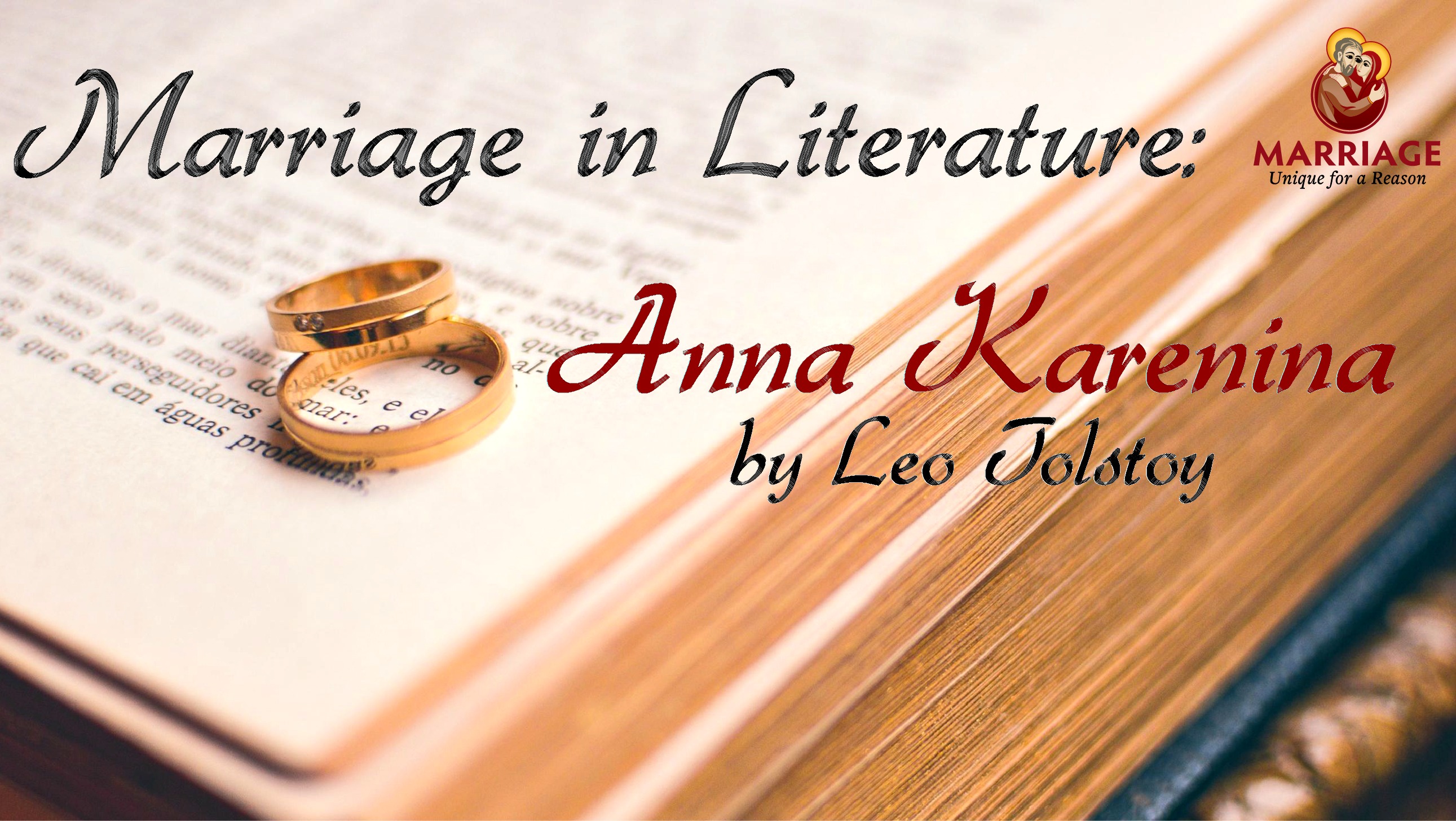Anna Karenina by Leo Tolstoy (published 1877)
Tolstoy’s Anna Karenina, while clearly diagnosing the problems of lust and adultery through the main protagonist, also offers a more sanguine view of love, marriage and family through the relationship of Levin and Kitty.
Five elements for consideration:
- Emotional maturity is important in love.
Levin persists in caring for Kitty even after she rejects him—she, like Anna, was infatuated with the dashing Vronsky at the time that Levin proposed. Levin does not nurse his feelings of rejection, reproach her, or demand some sort of apology for her not choosing him first. Instead, he is grateful and content to receive her love when she is ready. In their first meeting after a number of years, “[Kitty] and Levin had a conversation of their own, yet not a conversation, but a sort of mysterious communication, which brought them every moment nearer, and stirred in both a sense of glad terror before the unknown into which they were entering” (p. 461). Levin experiences the emotional high of being “in love” the day he goes to Kitty’s house to receive her parents’ consent to their marriage: “All that night and morning Levin lived perfectly unconsciously, and felt perfectly lifted out of the conditions of material life” (p. 475). He wants to marry her the very next day, if possible, but her parents add a dose of prudence (and a trousseau). None of this joy would have been possible if Levin had held on to pride, jealousy, or resentment.
- The love between man and woman is a common experience that draws a community together.
After he becomes engaged to Kitty, Levin is surprised because, “He had thought his engagement would have nothing about it like others, that the ordinary conditions of engaged couples would spoil his special happiness; but it ended in his doing exactly as other people did, and his happiness being only increased thereby and becoming more and more special more and more unlike anything that had ever happened” (p. 481). Kitty also feels that the time was one of “utmost bliss and the utmost misery” (p. 533). Instead of his joy being dampened by the fact that other couples had felt the same way, Levin realizes that this fact is a joyful one. He is entering into the state of Matrimony where many have been before him, and many will follow. His vow joins him in a way to all those who have made the same vow. This is part of the beauty of saying the traditional vows at a wedding ceremony; being conscious of all those who have said, and will say, those same words.
- It is important for a man and a woman who are considering marriage not to conceal things from one another.
Levin decides to confess to Kitty that he is not a virgin: “He knew that between him and her there could not be, and should not be, secrets, so he had decided that so it must be” but he is surprised by how affected she is by it (p. 482). She forgives him, “but it’s terrible!” she exclaims (p. 482). Levin’s past actions, especially his sexual experiences, affect his current relationship. This is always true. In marriage, this transparency must continue. Today, one may think of pornography and the way that spouses may try to conceal these struggles from each other. This lack of transparency, while it may seem to be protective, erodes trust between spouses. (This is not to say that one’s spouse should be one’s accountability partner, simply that the struggle should not be a hidden one)
- Weddings are blessed times for all married couples to recall their own promises.
Levin is keenly aware of the mystery of the Sacrament of Matrimony during his own wedding: “Levin felt more and more that all his ideas of marriage, all his dreams of how he would order his life, were mere childishness, and that it was something he had not understood hitherto, and now understood less than ever, though it was being performed upon him. The lump in his throat rose higher and higher, tears that would not be checked came into his eyes” (p. 524). But it was also an occasion for others in the congregation: “[Dolly] was deeply moved… She was rejoicing over Kitty and Levin; going back in thought to her own wedding, she glanced at the radiant figure of [her husband], forgot all the present, and remembered only her innocent love… with love and hope and dread in their hearts” (p. 536). Attending weddings together, married couples may contemplate their own growth in their vocation.
- Marriage, even a happy marriage, is not easy.
Levin is surprised and disappointed to learn that complete marital bliss does not follow the wedding. “[He] could never have conceived that between him and his wife any relations could arise other than tender, respectful and loving, and all at once in the very early days they quarreled, so that she said he did not care for her, that he cared for no one but himself, burst into tears, and wrung her arms” (p. 565). Levin found that while he wanted to blame Kitty for these fights, he longed to “make up” even more. Tolstoy writes that the first three months of marriage were very difficult for these two. Throughout the novel, Levin and Kitty experience misunderstanding, jealousy, anger and pain in their relationship, yet it must truly be said in the end that theirs is a happy marriage. This can be a good reminder to married couples when they experience a dry or difficult period in their marriage.

Leave a Reply